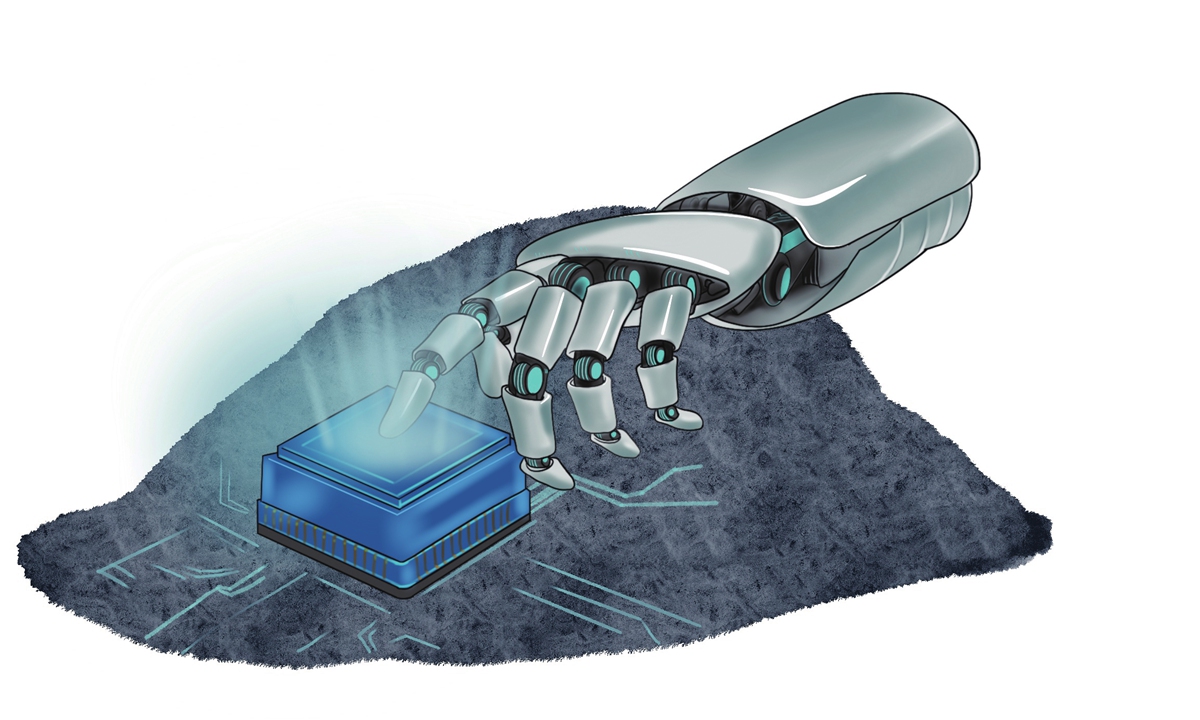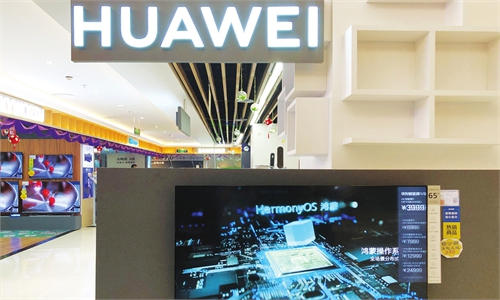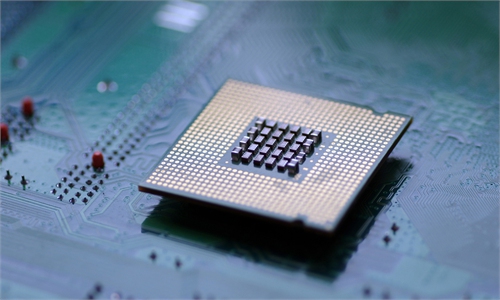COMMENTS / EXPERT ASSESSMENT
China should be ready to handle US’ further ‘tech blockade’

Illustration:Tang Tengfei/GT
US prosecutor Thea Kendler, an attorney involved in the case against Huawei and its chief financial officer Meng Wanzhou, will be nominated for a key position responsible for controlling exports - assistant secretary for export administration, US Department of Commerce, the White House announced on Wednesday.
Kendler is expected to work under Alan Estevez, a former Pentagon official, who was nominated on July 13 to be the US Commerce Department's undersecretary for industry and security, a position central to the US' tech war against China, according to the Reuters.
As the trial of Meng's case continues to reveal evidence, the case has been proved to be a totally political stitch up orchestrated by the US. To name an attorney involved in the political case against China's tech giant Huawei amid the US' relentless crackdown and blockade against China's tech companies, this is another clear signal that the US is highly likely to continue intensifying tech blockade against China.
The US Department of Commerce has adopted a series of restrictions on US exports of crucial technologies and products to China, such as repeatedly issuing blacklists to restrict or ban the export of key technologies or products to some Chinese companies. In latest case, the US Department of Commerce earlier this month added 23 Chinese entities to its blacklist, citing baseless accusations. After the nomination of Kendler, the US is highly likely to impose more restrictions on the exports of technologies and products to China in the future.
Refuting the US' arbitrary move to expand the economic blacklist against Chinese companies, China's Commerce Ministry said on July 11 that the move represented an unreasonable suppression on Chinese enterprises, which China resolutely opposes. The US should immediately correct the wrong practices.
Faced with increasingly strict controls of technology and products by the US Department of Commerce amid the tech war, Chinese enterprises should take effective measures from all aspects to protect their legitimate rights and interests. Companies that are unreasonably blacklisted by the US should actively negotiate to and seek exemptions from the US Commerce Department. Chinese companies should carefully analyze the new US policy towards China's investment and exports to China, and use legal weapon to protect their interests in accordance with economic rules.
In his first foreign policy speech in February, US President Joe Biden called China the "most serious competitor" to the US. As digital economy supported by new technologies has increasingly become an important area of the competition among major economies in the world. The US is expected to further ramp up efforts to maintain its dominant position through preventing or slowing China's progress in technology. This is expected to become a normalized strategy of the US government.
To cope with the US' intensifying tech suppression, China should further step up efforts to establish self-reliance in key technology areas. China's 14th Five-Year Plan (2021-25) has put innovation at a new height and "take science and technology self-reliance and independence as the strategic support for national development." The plan calls for strengthening innovation and research and development in core areas that impact national security and the overall development, including artificial intelligence, quantum information, and integrated circuits.
To achieve this goal, China's entire research and development system, including enterprises and research institutions, needs to be further coordinated and integrated. To promote basic research and development, enterprises and scientific research institutions should form a stronger synergy. With better docking between the state research institutions and enterprises, limited inputs will produce maximum benefits and outputs.
The author is an economics professor at the Renmin University of China. bizopinion@globaltimes.com.cn



